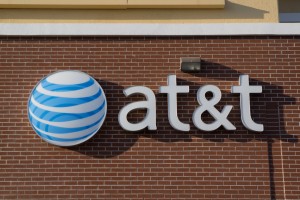AT&T posts strong wireless, HBO Max performance, but...
AT&T is upbeat about its performance in the final quarter of last year – and 2020 as a whole – thanks largely to customer growth at its mobile and HBO Max video streaming unit.
January 28, 2021

AT&T is upbeat about its performance in the final quarter of last year – and 2020 as a whole – thanks largely to customer growth at its mobile and HBO Max video streaming unit.
But the telco also glossed over a hefty writedown on the value of its video business, continued cord-cutting, and lacklustre guidance for the coming year.
Chief executive John Stankey opened the US telco’s earnings call by talking up strong customer growth in certain key segments. “We added 1.5 million postpaid phones during the year, our most net adds in a decade,” he said, according to a transcript of the call, while fibre customer additions were north of 1 million.
“And perhaps most remarkable during this pandemic, we launched HBO Max. And about 7 months later, we had more than 41 million HBO Max and HBO domestic subscribers, 2 years ahead of the plan we shared with you in October of 2019,” Stankey said. That figure compares with about 35 million HBO customers at the end of 2019, prior to the launch of the streaming service.
Of course, those figures show a fair amount of cannibalisation, which is also evident in AT&T’s figures for its video business overall. The cord-cutting trend continued, with AT&T’s video customers sliding to 17.2 million at year-end from 20.4 million 12 months earlier. And the video business, which is now run separately from the telco’s broadband and legacy voice operations, posted operating revenues of $7.2 billion in Q4, down from $8.1 billion in the year-earlier period.
AT&T said it has reexamined the book values of its video assets and as a result recorded an impairment charge of $15.5 billion.
To sum up: streaming video is going well, but there is ongoing pain at the telco’s legacy video operations, which include the DirecTV business it paid $67 billion including debt for in 2015, and which is now believed to be worth somewhere in the region of $15 billion, if reports of talks with potential buyers prove to be accurate. Market watchers are still waiting for a sale announcement that could come any time.
Last week Reuters cited unnamed sources as saying AT&T was holding exclusive talks with private equity firm TPG over a minority stake in DirecTV that could value the unit as a whole above the $15 billion mark. Time will tell on that score.
Overall, AT&T reported an operating loss of $10.7 billion in Q4, more than double its $5.3 billion loss in the year-ago quarter, as a result of the writedown and the impact of lower revenues. Its net loss came in at $13.9 billion after a small profit last year, while earnings per common share were a negative $1.95.
Q4 revenues were down by just over $1 billion year-on-year to $45.7 billion, with WarnerMedia, video, fixed-line and the Latin America business dragging down the topline, with domestic mobile providing a boost, primarily due to equipment sales.
Full-year revenues came in $171.8 billion versus $181.2 billion in 2019, while operating income dropped 77% to $6.4 billion, and the firm recorded a net loss of $5.4 billion, having a turned a $13.9 billion profit in 2019. Full-year free cash flow was down to $27.5 billion from $29 billion, while the telco’s shaved $3.5 billion from its net debt.
AT&T’s guidance for the current year shows a small amount of revenue growth – in the 1% range – and flat adjusted EPS, which is perhaps the best we could have hoped for under the circumstances.
About the Author(s)
You May Also Like








.png?width=300&auto=webp&quality=80&disable=upscale)


_1.jpg?width=300&auto=webp&quality=80&disable=upscale)


.png?width=800&auto=webp&quality=80&disable=upscale)